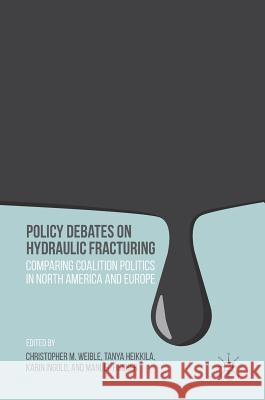Policy Debates on Hydraulic Fracturing: Comparing Coalition Politics in North America and Europe » książka
topmenu
Policy Debates on Hydraulic Fracturing: Comparing Coalition Politics in North America and Europe
ISBN-13: 9781137603760 / Angielski / Twarda / 2016 / 276 str.
Kategorie BISAC:
Wydawca:
Palgrave MacMillan
Język:
Angielski
ISBN-13:
9781137603760
Rok wydania:
2016
Wydanie:
2016
Ilość stron:
276
Waga:
4.85 kg
Wymiary:
21.0 x 14.8
Oprawa:
Twarda
Wolumenów:
01
Dodatkowe informacje:
Bibliografia
Wydanie ilustrowane
Wydanie ilustrowane











